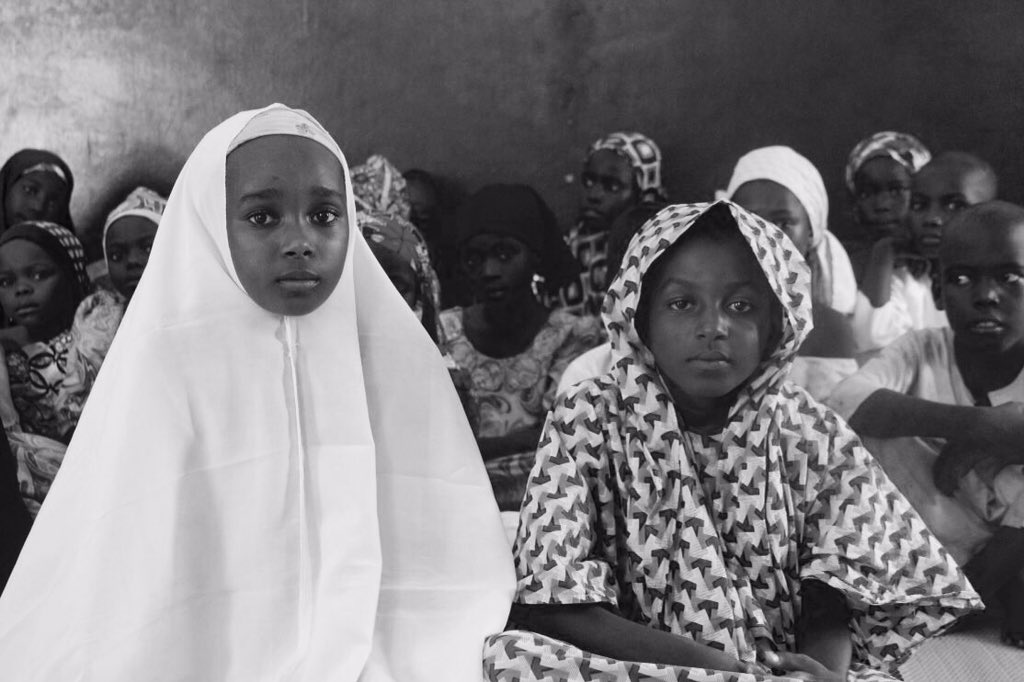Breaking News
Helpless Children of Borno Who Defy Boko Haram To Study In The Face Of Insurgency

By Eromo Egbejule
In 2014, Umar was a 300-level Geology undergraduate of the University of Maiduguri. His love for education had made him continue with his education after completing a diploma in Surveying & Geoinformatics at the same university. To pay his fees and cater for himself in school as well as support his four younger siblings, he would take 25-30 cows in a trailer from his hometown Baga in Borno state to Lagos every fortnight.
Humble, unassuming and soft-spoken, the six-footer was working towards a better future.
But in September 2014, everything in Baga, popular for being a fishing and farming nerve centre to Maiduguri, Chad, Niger & Cameroon came to a halt when the insurgents struck. In escaping for his life, his father disappeared and till date neither Umar nor his mother and siblings know if he is dead or alive.
After scrounging funds to go to Abuja, the 25-year old eventually met Fiona Lovatt, founder of the Lovatt Foundation who runs Children of Borno, two homeschools for children who have lost one or both parents to the many Boko Haram attacks, back in Maiduguri. She opened a third one and put him in charge.
“She gave me transport fare to go and get my mother and siblings from Diffa”, he said. “Together we run the home – my mother supervises the cooking for the house and two of my siblings are teachers at the school.”
The home Umar runs has about 32 children in all; the youngest of the kids is four and the oldest is thirteen. On entering the compound, the joyful noise of their recitation punctuating the silence of the serene environment, is a pleasant welcome.
The children come from everywhere – the IDP camps, the surrounding communities and even the most unusual of places. Once he saw three of the boys walking aimlessly on the road, begging for money to eat. “They told me their parents were dead so I took them to the bulama (area head) to ask for permission first and then I brought them to the home. Some of them here don’t even know where their parents are.”
Within the compound, there are a couple of rams here and there, the result of practical animal husbandry by the children, as well as flowers and handcraft done by them.
“They do these inscriptions of the Qu’ran because it is the fastest way for them to memorize it and they make the ink they use in inscribing as well”, says Umar.
The routine follows a similar pattern every day. They wake at 8am, pray, then do house chores until 9am when they eat breakfast and then classes begin. Divided into two classes, the school teaches English Language, Arabic, History, Mathematics, Social Studies, Agricultural Science.
“It is a good thing we have this school because after this crisis ends fully, they won’t be a liability. After the children read and write, we can take them to secondary school and Insha Allah, even further.”
Back in Baga, the peace is uncertain. Friends who have been there tell him soldiers currently surround the river, guarding the fishermen. The soldiers also help in transporting the fish in Toyota Hilux trucks to Maiduguri to sell.” In all of this, no one has heard news about Umar’s father. “We still don’t know where he is and if he is dead or alive”, he sighs.
Not that it has distracted him from playing a fatherly role to the children he now caters to, a responsibility that he is grateful to the Lovatt Foundation for.
“Fiona pays salary to the teachers and the mother of the home, feeds and put a roof over us all. Before they came here, most of the children had never had three meals in their life before.”
“Only God can pay her”, he sighs wistfully, pointing at the blue sky. “Only God”.
Article originally published here but republished on NewsWireNGR with Permission from the writer, Eromo…






